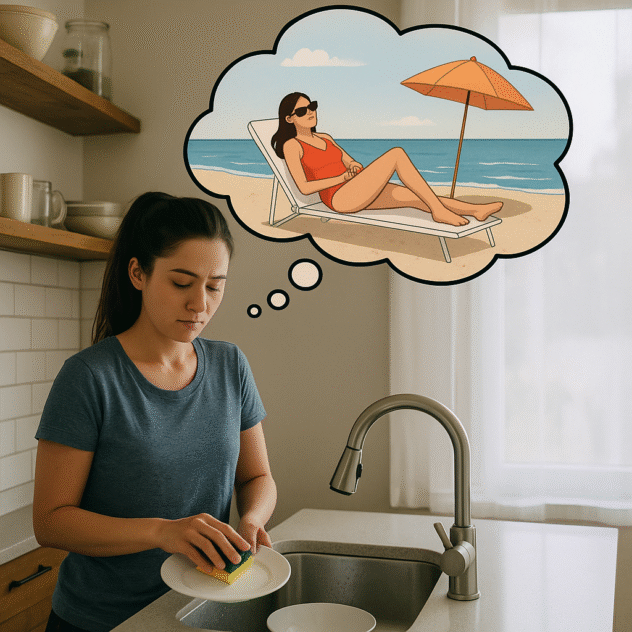
How to Support a Neurodivergent Partner: Tips for Building a Loving, Understanding Relationship
Navigating life when you support a neurodivergent partner can be a unique and rewarding adventure, full of insights, growth, and yes, sometimes, the occasional challenge. Neurodiversity isn’t a one-size-fits-all; it’s an umbrella covering conditions like ADHD, autism, dyslexia, and beyond. Each person’s experience is unique, so there’s no “standard manual.” But with empathy, patience, and a few practical strategies, you can create a harmonious, supportive relationship that celebrates both of you. Ready? Let’s dive in!
1. Get Curious: Educate Yourself
One of the best things you can do for your relationship is to understand your partner’s world. Learning about their specific neurodivergence can give you valuable insights into why they think, feel, and react the way they do. This is especially true for ADHD, where challenges like executive function, accountability, and mood regulation often impact day-to-day life.
Resources to Get Started:
Unlock peak brain performance with science-backed biohacks. Join free now & get your guide for just £4.99 (45% off)!

- Books: Check out titles like The Reason I Jump by Naoki Higashida (an eye-opener on autism) or ADHD 2.0 by Dr. Edward Hallowell for ADHD insights.
2. Communication is Key 🔑
When it comes to neurodiverse relationships, clear and open communication isn’t just important, it’s everything. Encourage your partner to share their needs and feelings, and be ready to share your own in a way that’s straightforward and kind.
Tips for Talking It Out:
- Be Patient: Neurodivergent individuals may need a little extra time to process and express their thoughts.
- Use Simple, Direct Language: Metaphors and idioms might add unnecessary confusion. Be clear and to the point.
- Listen to Understand, Not Just Respond: Sometimes, all they need is validation, not a solution. Even if you don’t fully understand, show empathy and try to see things from their perspective.
3. Build a Routine and Stick to It
Many neurodivergent people, particularly those with ADHD, find comfort in routine. Consistent patterns can help reduce anxiety, giving them a sense of control and predictability in an otherwise chaotic world. And let’s be honest, routines can also help with accountability, a big one for ADHD! Having a predictable structure can make it easier to stay on track with shared plans and responsibilities.
Ideas for Adding Routine:
- Daily Check-ins: A quick “How are you feeling today?” can go a long way.
- Scheduled Activities: Set up regular outings or activities you both enjoy. Knowing what’s on the calendar can help reduce the anxiety of the unknown.
4. Be Aware of Sensory Sensitivities
For some neurodivergent individuals, everyday sensory experiences can feel like too much. Whether it’s a loud noise, bright lights, or certain textures, being mindful of these sensitivities can make a big difference.
Sensory Considerations:
- Noise Levels: Use noise-canceling headphones or play soothing background sounds if loud noises are bothersome.
- Lighting: Opt for softer lighting, and let them wear sunglasses indoors if it helps.
- Physical Touch: Respect any boundaries they have around touch. Sometimes, a gentle squeeze on the arm might feel like a bear hug to someone with sensory sensitivities.
5. Flexibility is Your Best Friend
Patience isn’t just a virtue, it’s a relationship superpower when you’re with a neurodivergent partner. Misunderstandings can happen, and things might not go as planned, so having a flexible mindset helps keep the peace.
How to Cultivate Patience and Flexibility:
- Mindfulness Practices: Consider trying mindfulness or meditation. It can help you stay grounded when things get a bit tricky.
- Pause Before Reacting: Give yourself a moment to think before responding during conflicts. Taking a breath can make all the difference.
6. Accountability Without Judgment
ADHD, in particular, can make sticking to plans challenging. Things like executive function difficulties (think planning, memory, or time management) can impact accountability. Gentle reminders and a touch of patience can make all the difference.
Helpful Approaches:
- Set Reminders Together: If your partner tends to forget plans or tasks, try setting reminders together. This way, it feels like teamwork, not nagging.
- Encourage Small Steps: Rather than expecting big changes all at once, encourage manageable steps. Celebrate each win, no matter how small, because it all adds up. 🎉
7. Recognising and Managing Mood Dysregulation 🌩️
Mood dysregulation is often part of the ADHD experience. Emotional highs and lows can happen without warning, making it difficult for both partners. Understanding that these mood swings aren’t personal and offering a safe space for your partner to express themselves can go a long way.
Ways to Support Mood Stability:
- Be There Without Trying to “Fix”: Sometimes, your partner just needs you to listen without immediately jumping in with solutions.
- Set Boundaries for Your Own Well-being: Supporting a partner through mood dysregulation can be emotionally draining. It’s okay to set gentle boundaries to ensure you’re also taking care of yourself.
- Eat Well and Supplement: We’ve found ways to ensure we make the most of our neurodivergent brains!
8. Seek Out Extra Support When Needed
If you’re feeling overwhelmed, it’s okay to reach out for help. Therapists who understand neurodiversity can offer tailored guidance and techniques, helping you both feel supported and understood.
Where to Find Support:
- Couples Therapy: Look for professionals experienced with neurodiverse couples. They can provide strategies specific to your unique relationship.
- Support Groups: Connecting with others in similar situations can remind you that you’re not alone, and it’s a great way to exchange tips and share experiences.
9. Embrace ADHD as a Superpower
Living with ADHD isn’t just about managing challenges. Many people with ADHD possess incredible strengths: creativity, out-of-the-box thinking, and the ability to hyper-focus on things they’re passionate about. When ADHD is harnessed correctly, it can genuinely feel like a superpower.
Ways to Tap Into Their Strengths:
- Encourage Their Passions: ADHD minds often thrive when they’re engaged in something they love. Encourage their creative pursuits, and celebrate those moments when they shine.
- Focus on the Positives Together: Recognise that their unique perspective adds something special to your relationship. Celebrate the quirks and differences that make your bond stronger and more interesting.
Embracing Each Other’s Differences
Navigating a relationship with a neurodivergent partner isn’t about “coping”, it’s about understanding, supporting, and growing together. Every relationship is a journey, with ups, downs, and endless chances to learn. By building routines, communicating openly, and celebrating each other’s unique perspectives, you’re setting a foundation for a relationship that’s both resilient and deeply fulfilling.
At the end of the day, love is love, and a little extra patience and empathy can make it that much stronger. Here’s to embracing each other’s quirks, strengths, and everything in between to support a neurodivergent partner!
Join Our Community
We’re your biggest cheerleaders. Join our forums and talk to like-minded others or even specialists in a safe space!






